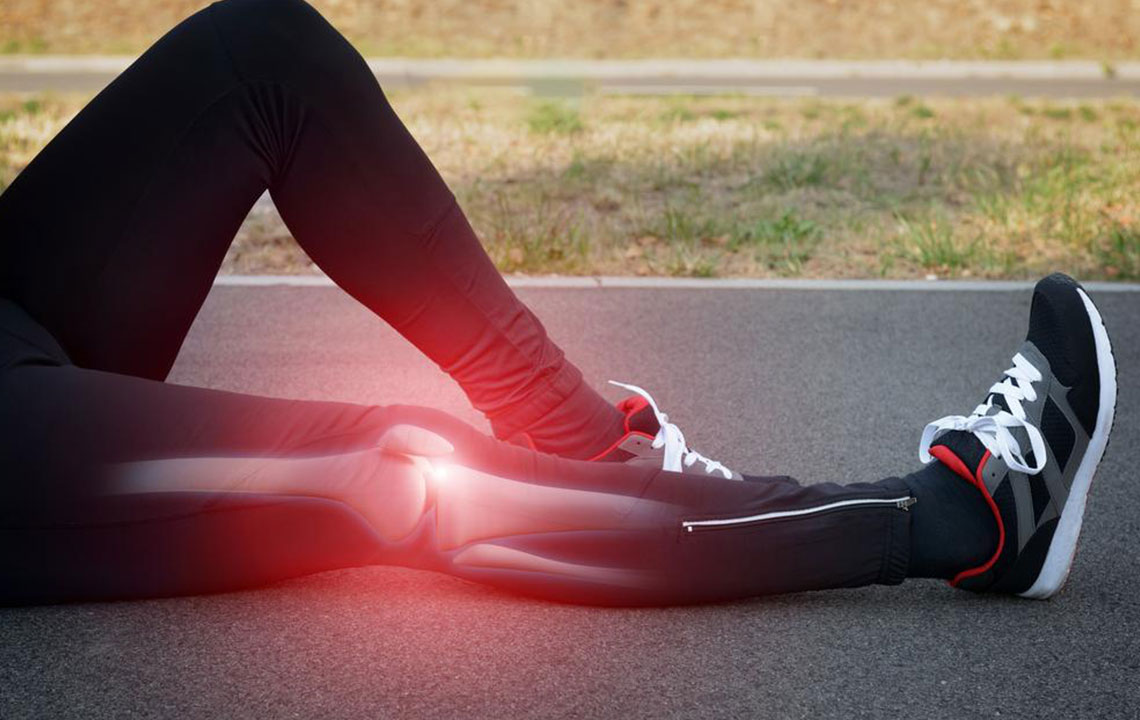What Causes Leg Pain Behind The Knee
Leg pain behind the knee is also called posterior knee pain. There can be multiple causes of this pain. Arthritis, road accidents, muscle injuries, old age and faulty sports techniques, and the like are some of the major causes of posterior knee pain.
Posterior knee pain can be mild and is only noticeable after a long day’s work or if you try to straighten your leg completely. It can also be severe, debilitating and can restrict your movement, making it difficult to sit and stand straight. In some cases, leg pain behind the knee can be accompanied by stiffness, tender and sore muscles, which can be painful to touch.

Posterior knee pain is caused due to severe arthritis, tumors, and blood clots. Other conditions can cause compressed nerves which inflame the muscles behind the knee.
Baker’s Cyst
Baker’s Cyst is also referred to as Popliteal Cyst. Popliteal sac is a fluid-filled sac, present at the back of the knee. Often in arthritis patients, the fluid from the joints leaks into the popliteal sac, causing it to swell. Baker’s cyst can also be caused due to repetitive bending and flexing of the knees, which causes a fluid buildup. This fluid then forms a cyst which resembles a small balloon. The swelled popliteal cyst causes pain and inflammation at the back of the knee joint.
Deep Vein Thrombosis (DVT)
This is a condition characterized by the formation of blood clots in the veins that are behind the knee. There can be one or multiple clots that can make it difficult to sit or stand properly. DVT can be serious because if the cysts burst they can cause a heart attack or blockage of arteries in the lungs. If you are diagnosed with DVT, it is advisable to consult a doctor and take proper medication.Leg pain behind the knee is caused due to injuries and accidents. The muscles or tendons can get torn which is painful and can take a lot of time to heal. Following are some of the causes of leg pain behind the knee due to accidents or injuries.
Gastrocnemius Tendinopathy
Gastrocnemius Tendinopathy is a condition associated with degeneration of the tendons at the back of the knee by over usage. Sprinters and runners who run long distances or cyclists tend to overuse the calf muscles. This overuse causes degeneration of the tendons present at the back of the knee, causing pain and inflammation.
Biceps Femoris Tendinopathy
Biceps Femoris is one of the hamstring tendon groups present behind the knee. It is extensively used when we engage in sports activities like running or sprinting. The Biceps Femoris tendons transmit the force produced by the biceps femoris muscles to the lower leg. Excessive use of this tendon causes small invisible tears on it, over time. This causes inflammation and pain behind the knee towards the outer portion. Biceps Femoris can be cured without medication. Physiotherapy sessions are the best treatment for this condition.
Hamstring tendonitis
If you are not a fan of regular exercise, you might experience pain at the back of your knee, due to physical exercise. Hamstring Tendonitis is a condition caused due to back and forth motion of the lower leg (like a pendulum). This puts excess pressure on the hamstring, causing it to become inflamed and painful. This pain, however, is not severe, and it eases once you become habitual of doing physical exercise. Hamstring Tendonitis can also be caused due to faulty sports techniques. It is always beneficial to consult your sports trainer before starting any physical activity.
Tennis Leg
When the calf muscles are used rigorously, it sometimes causes a tear in the big calf muscles, or in the plantaris muscle. This leads to a sharp pain in the back of the knee.
Posterolateral Corner Injury
Posterolateral Corner Injury is caused by road accidents that impact the knee directly, or due to injuries while playing sports. This kind of an injury is not very common but it causes acute pain at the back and on the exterior side of the knee.
Torn Meniscus
The meniscus is a cartilage that is present in between the upper and lower leg bones. Its function is to keep the knee joint steady. A tear in this cartilage can cause pain and rigidness in the knee. Overuse can tear the meniscus. It can be due to aging or by sudden injury like twisting of the leg. A torn meniscus causes a sharp pain behind the knee, which arrests movement and requires immediate attention.

